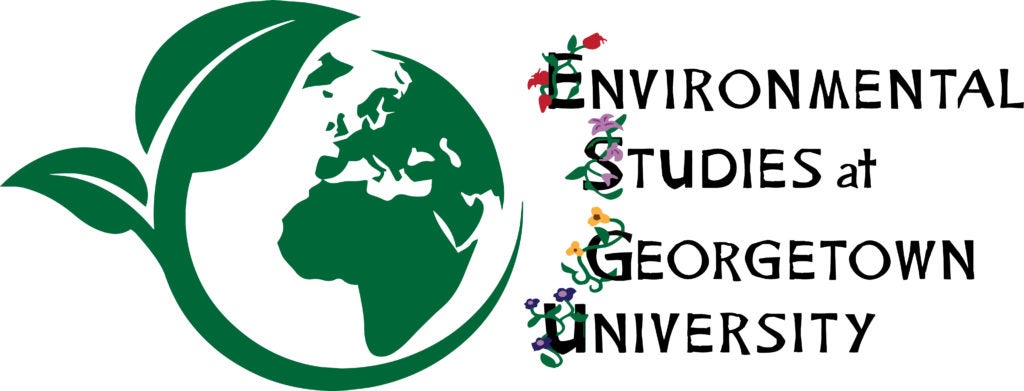Spring Course Offerings!
Posted in Announcements
For the spring semester ahead, we are excited to offer another suite of cutting-edge courses as part of the Environmental Studies 2.0 program realignment! Registration opens in early November, so bookmark these courses in your planning process and contact us with any questions (also visit our Program and People pages for more info):

ENST 110: Environment & Society (MW 3:30-4:45pm) Faculty: Randall Amster & TBA (co-taught course)
This foundational course surveys the field of environmental studies, covering theories and applications in the realms of science, policy, and humanities. What are the most pressing environmental issues today, and how have they developed over time? How are social and political issues influenced by the environment, and how is the environment impacted by human societies? Looking at spheres including food, water, energy, and climate, this course draws upon a wide of array of resources and materials to engage environmental challenges and highlight possibilities for transformation. The course will also include a community-engagement component with various local partners. The class is required for ENST minors, but is open to students from across the university interested in the nexus of environmental and social issues.
ENST 220: Issues in Environmental Science (R 5:00-7:30pm) Faculty: Peter Mecca (meets ‘Science for All’ requirement)
This course will introduce students to patterns and processes in the natural world and their modification by human activity. Students will be introduced to the Earth’s “spheres” — the atmosphere, hydrosphere, lithosphere, and biosphere, which make life possible — and will examine the ways in which human activities are perturbing these spheres. Specific topics to be covered may include energy, population, global climate change, and air and water pollution. Students will gain the skills necessary to understand some of today’s most pressing environmental issues by examining scientific principles and the application of those principles to natural systems. Because environmental science has always been an applied science, we will also explore practical approaches for solving these problems — including lectures, discussions, films, hands-on exercises, demonstrations, field trips, community engagement, and more.
ENST 260: Environmental Health (T 12:30-3:00pm) Faculty: Laura Anderko
This course will explore how the environment impacts health across the lifespan with special attention to those populations most vulnerable to illness from exposure to pollution, chemicals, and/or contaminants. Evidence will be examined for a wide range of exposures (e.g., chemicals, metals), exposure pathways (vectors, water, air, soil, housing) and health outcomes (e.g., neurodevelopment disabilities, cancer, asthma). Public health approaches to protecting populations through policy initiatives will be a focus for all exposures and health outcomes. We will also explore the healing aspects of positive environments such as nature.
ENST 350: Gender & Sustainability (T 3:30-6:00pm) Faculty: Patricia Biermayr-Jenzano
The course will present an overview of gender and development policies worldwide, including the introduction to gender analysis as the central aspect to understanding patterns of land use and conservation strategies, both individual and collective and how male and female farmers contribute differently to conservation and agricultural production efforts. Students will be presented with real case studies from Africa, Asia and Latin America, documenting gender gaps in the access to a large range of agricultural resources, including extension services, land and farm labor, forest, livestock, and other assets. Current international trends and research streams on gender and agriculture and natural resource management (NRM) will be discussed and analyzed with the aim to influence policy to reach lasting change. An independent module on action research (AR) theory and methodologies will be part of the course, in order to provide students with some qualitative research skills and tools to conduct first hand research on a variety of topics that include gender, livelihoods strategies, and resources allocation in relation to development challenges in various world regions.
ENST 370: Ecotopian Visions: From Catastrophe to Community (M 12:30-3:00pm) Faculty: Randall Amster (meets HALC requirement)
From time immemorial people have longed for and sought to manifest human societies that exist in a harmonious balance with the natural environment. Sometimes this takes the form of a pristine Edenic vision of a simpler time, implying that such a paradise may not be attainable in a more complex world. On the other hand, many treatments of these matters cast the project squarely within the framework of contemporary conditions including environmental degradation and sociopolitical conflict, viewing these “ecotopian visions” as a direct response to the challenges and crises emerging in the modern era. From communal experiments and direct-action movements, to vivid literary and visual portrayals, the concept of ecotopia has continued to animate visions and inspire actions. In this course we will pull on these ecotopian strands through works of fiction and nonfiction, film and video, and grounded exploration of communities of practice in the field, seeking to fully appreciate the continuing relevance of a concept that the New York Times once called (in 2008) both “obscure and widely influential at the same time.”
